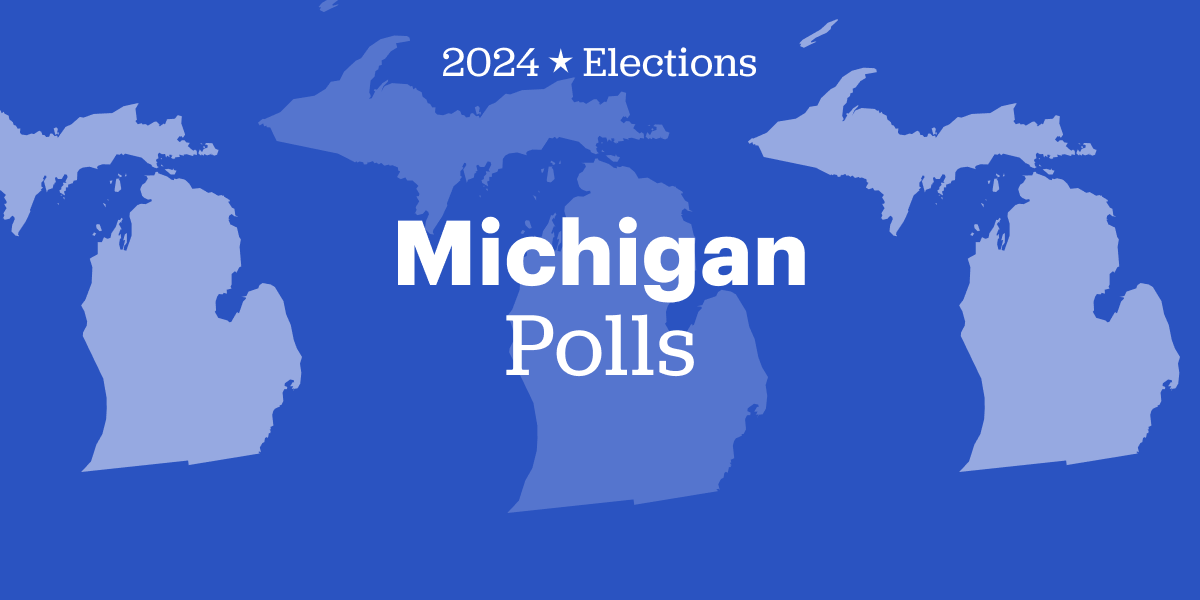Key Races and Candidates: Michigan Primary Results

The Michigan primary elections saw a number of high-profile races, with several candidates vying for the chance to represent their party in the general election. Here’s a look at some of the key races and their potential implications.
Governor
The Democratic primary for governor saw a close race between incumbent Gretchen Whitmer and challenger, a former state representative. Whitmer ultimately won the nomination, securing her place on the ballot for a second term. Her opponent in the general election will be the Republican nominee, who emerged victorious from a crowded field of candidates.
Whitmer’s victory in the primary is a testament to her strong support among Democratic voters in the state. Her record on issues such as healthcare, education, and the environment has resonated with many voters. However, she will face a challenging race in the general election. The Republican nominee has pledged to focus on issues such as taxes, crime, and education. The race is likely to be close, with the outcome potentially hinging on the level of voter turnout in both parties.
U.S. Senate
The Republican primary for U.S. Senate was a heated contest between incumbent, a long-time senator, and a challenger, a businessman. The incumbent ultimately prevailed, securing the Republican nomination. The Democratic primary was less contentious, with a clear frontrunner, a former mayor, who easily won the nomination.
The general election will likely be a close race. The incumbent senator has a strong record of accomplishment, but the challenger has a strong grassroots organization and is likely to mobilize voters around his message of change. The race will be closely watched, as it could have implications for the balance of power in the U.S. Senate.
Other Key Positions
In addition to the governor and U.S. Senate races, there were a number of other key races on the ballot. For example, the Democratic primary for attorney general saw a close contest between the incumbent and a challenger, a former prosecutor. The incumbent ultimately won the nomination, securing her place on the ballot for a second term.
The results of these primary races have important implications for the general election. They provide insights into the priorities of voters in the state and the potential strengths and weaknesses of the candidates. The general election will be a close contest, with the outcome likely to be decided by a small number of voters.
Voter Demographics and Analysis

The Michigan primary election results offer valuable insights into the electorate’s demographic composition and voting patterns. Examining these factors can shed light on the factors influencing the outcomes and potential trends for the general election.
Age and Voting Preferences
The age of voters is a significant factor influencing electoral outcomes. Examining the voting patterns of different age groups can reveal valuable insights into the priorities and concerns of each generation. For instance, younger voters are generally more concerned with issues like climate change and student debt, while older voters may prioritize healthcare and social security. Analyzing the turnout and voting preferences of different age groups in the Michigan primary can provide valuable insights into the electorate’s priorities and potential areas of concern.
Racial and Ethnic Diversity in Voting
Michigan has a diverse population, and understanding the voting patterns of different racial and ethnic groups is crucial for analyzing the election results. Examining the turnout and voting preferences of different racial and ethnic groups can provide valuable insights into the factors influencing their choices. For instance, the voting patterns of African American voters in Michigan have historically been crucial in determining the outcomes of elections. Analyzing the voting preferences of different racial and ethnic groups in the Michigan primary can shed light on the factors influencing their choices and potential impact on the general election.
Gender and Voting Patterns
Gender is another important factor to consider when analyzing voter demographics. Examining the voting patterns of men and women can reveal valuable insights into their priorities and concerns. For example, women are generally more likely to vote for candidates who support policies related to reproductive healthcare and family leave. Analyzing the turnout and voting preferences of men and women in the Michigan primary can provide valuable insights into the factors influencing their choices.
Geographic Distribution of Voters, Michigan primary results
The geographic distribution of voters is also a significant factor to consider when analyzing election results. Examining the voting patterns of different regions can reveal valuable insights into the local issues and concerns influencing voter choices. For instance, rural areas may prioritize issues like agriculture and infrastructure, while urban areas may focus on issues like education and public transportation. Analyzing the voting patterns of different regions in the Michigan primary can shed light on the factors influencing their choices and potential impact on the general election.